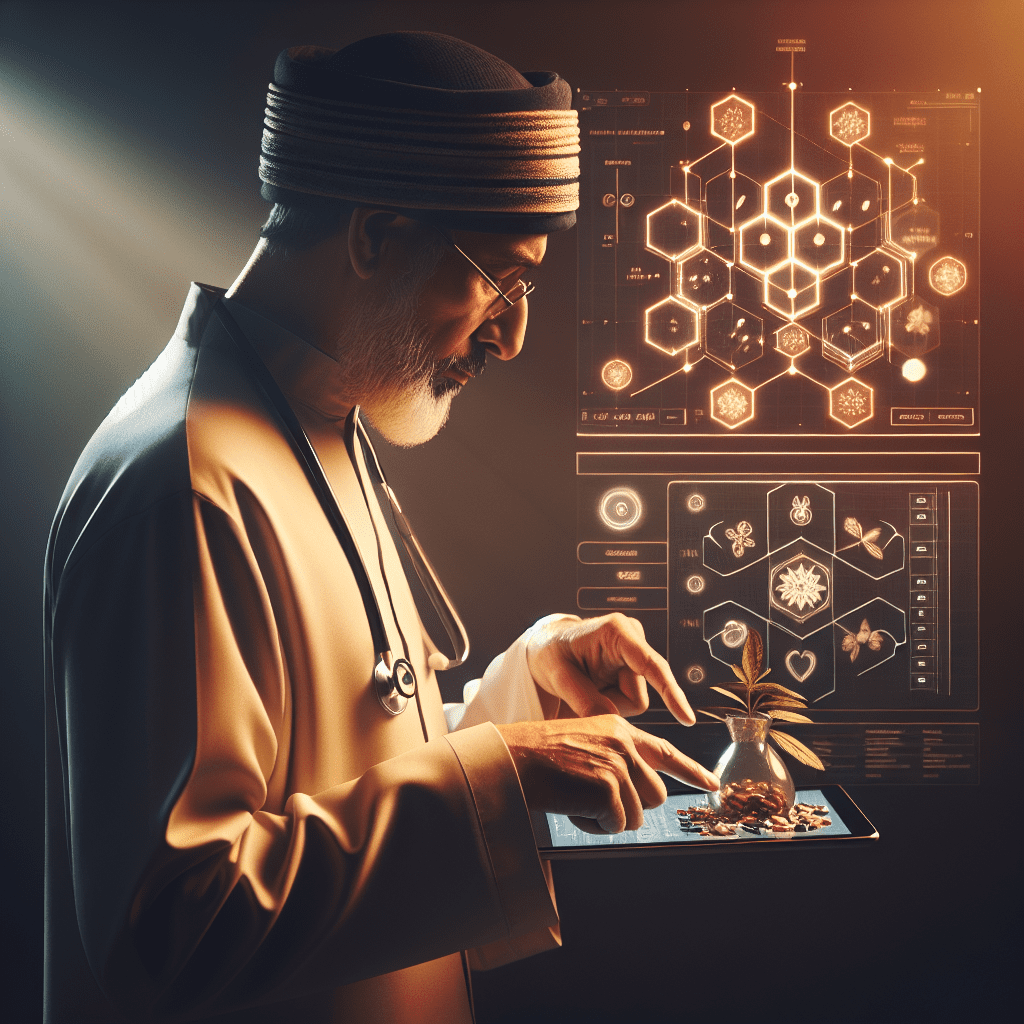In a world where quick fixes and symptom management dominate healthcare conversations, whole medical systems offer a refreshingly comprehensive alternative. These systems—developed over thousands of years across diverse cultures—represent more than just a collection of techniques; they embody entire philosophies of healing that view humans as complex, interconnected beings rather than collections of isolated symptoms.
Understanding Whole Medical Systems
Whole medical systems represent complete approaches to health and healing that have developed independently from conventional Western medicine. Unlike the standard medical model that often treats the body as a machine with parts that can be fixed in isolation, these holistic systems view health as a dynamic balance of interconnected elements.
Traditional Chinese Medicine (TCM), with its 2,000-year history, approaches health through the lens of energy flow (qi), yin-yang balance, and the five elements. Rather than focusing solely on eliminating disease, TCM practitioners assess overall patterns of disharmony to restore balance through acupuncture, herbal remedies, dietary therapy, and movement practices like tai chi.
Ayurveda, India’s ancient healing tradition, categorizes individuals into different constitutional types (doshas) and prescribes personalized regimens of diet, herbs, cleansing practices, yoga, and meditation to maintain harmony between body, mind, and spirit. The three doshas—Vata, Pitta, and Kapha—each represent unique combinations of elements and qualities.
Homeopathy, developed in Germany in the late 18th century, operates on the principle that “like cures like” and uses highly diluted substances to stimulate the body’s self-healing mechanisms rather than suppressing symptoms.
What unites these diverse approaches is their fundamental departure from conventional medicine’s reductionist view. While conventional medicine excels at acute care and emergency interventions, whole medical systems shine in their ability to see the complete picture of human health.
The Holistic Philosophy: Integration of Body, Mind, and Spirit
The core philosophy underlying holistic health approaches is startlingly simple yet revolutionary: humans are not just physical bodies but integrated beings with emotional, mental, and spiritual dimensions that all influence health. This stands in stark contrast to conventional medicine’s tendency to compartmentalize health concerns into separate specialties.
“Health is a state of complete physical, mental and social well-being and not merely the absence of disease or infirmity,” states the World Health Organization, echoing the holistic perspective that has guided traditional healing systems for millennia.
In holistic health, symptoms aren’t enemies to be eliminated but messages to be understood. A headache isn’t just a pain problem requiring painkillers; it might be a manifestation of stress, nutritional imbalances, sleep disruption, or emotional turmoil. By addressing the root causes rather than masking symptoms, whole medical systems aim to restore true wellness.
This integration of mind, body, and spirit isn’t just philosophical—it’s increasingly supported by scientific research showing how emotional states affect immune function, how chronic stress impacts cardiovascular health, and how spiritual practices can support healing processes.
Prevention and Self-Healing: The Proactive Approach
One of the most significant distinctions of whole medical systems is their emphasis on prevention and the body’s innate capacity for self-healing. While conventional medicine often waits for disease to manifest before intervening, holistic approaches actively work to identify and correct imbalances before they develop into diagnosable conditions.
In TCM, for example, subtle changes in pulse quality, tongue appearance, or energy levels might signal developing imbalances months or years before conventional tests would detect disease. By addressing these early warning signs through dietary adjustments, herbal support, or acupuncture, practitioners aim to restore balance before illness takes hold.
This preventive orientation extends to empowering individuals in their own health maintenance. Rather than creating dependency on practitioners, whole medical systems provide frameworks for daily self-care practices that support ongoing wellness:
- Seasonal dietary adjustments to harmonize with environmental changes
- Mind-body practices like meditation, yoga, or qigong
- Awareness of emotional patterns and their physical manifestations
- Regular detoxification or cleansing practices
- Alignment with natural rhythms of day and night
The focus on self-healing reflects a profound trust in the body’s wisdom—a stark contrast to approaches that view the body as inherently flawed and in need of constant external intervention.
The Focus Areas of Holistic Medicine
Holistic health practices address multiple dimensions of well-being that are often overlooked in conventional care:
Bio-individual nutrition: Rather than prescribing standardized diets, holistic systems recognize that nutritional needs vary based on individual constitution, current health status, age, season, and environment. Food is viewed as medicine, with specific qualities that can heal or harm depending on the individual’s needs.
Lifestyle interventions: Sleep quality, movement patterns, work-life balance, and daily rhythms are considered fundamental to health. Holistic practitioners often address these foundational aspects before recommending more targeted interventions.
Mental and emotional health: Emotions aren’t secondary concerns but primary influences on physical health. Techniques for managing stress, processing emotions, and cultivating positive mental states are integral to treatment plans.
Social relationships: Whole medical systems recognize that humans are social beings whose health is profoundly affected by the quality of their relationships and community connections. Isolation and loneliness are viewed as serious health risk factors.
Environmental health: From the quality of air and water to electromagnetic exposure and seasonal changes, environmental factors are considered significant determinants of health that require attention and adaptation.
By addressing these diverse aspects simultaneously, whole medical systems achieve outcomes that often elude conventional approaches, particularly for chronic, complex conditions.
Integrative Medicine: Bridging Traditional and Modern Approaches
Integrative medicine represents an evolution in healthcare that combines the best aspects of conventional medicine with evidence-based holistic approaches. Unlike traditional whole medical systems, which developed independently, integrative medicine deliberately brings together diverse healing traditions with modern medical science.
Dr. Andrew Weil, a pioneer in integrative medicine, describes it as “healing-oriented medicine that takes account of the whole person, including all aspects of lifestyle. It emphasizes the therapeutic relationship between practitioner and patient, is informed by evidence, and makes use of all appropriate therapies, both conventional and alternative.” As the father of integrative medicine, Weil has been instrumental in shifting both public and professional attitudes toward holistic care.
This approach acknowledges the strengths of conventional medicine—its diagnostic precision, emergency care capabilities, and surgical interventions—while incorporating holistic perspectives on prevention, lifestyle, and the body’s self-healing capacity.
Integrative medicine practitioners might recommend pharmaceutical interventions alongside acupuncture, mind-body techniques, nutritional therapy, or herbal medicine, creating comprehensive treatment plans that address multiple dimensions of health simultaneously.
This bridge-building approach has gained significant traction within mainstream healthcare institutions. Major medical centers including Memorial Sloan Kettering Cancer Center now offer integrative medicine services that complement conventional cancer treatments with evidence-based complementary approaches.
Common Elements Across Whole Medical Systems
Despite their diverse origins and specific techniques, whole medical systems share several fundamental elements:
Holistic perspective: All view humans as integrated wholes rather than collections of parts, with health arising from balance among various dimensions of being.
Patient-centered care: Treatment is tailored to the individual rather than standardized protocols, with personalization based on constitution, current conditions, and life circumstances.
Therapeutic relationship: The practitioner-patient relationship is itself considered healing, with emphasis on deep listening, presence, and partnership.
Natural approaches: Preference for supporting the body’s inherent healing mechanisms through minimally invasive interventions.
Systems thinking: Recognition that health emerges from complex interactions within the person and between the person and their environment.
These common elements suggest that diverse healing traditions have independently recognized similar truths about human health—truths that are increasingly supported by emerging research in psychoneuroimmunology, the microbiome, and other fields exploring the interconnectedness of biological systems.
Legal and Quality Considerations
The integration of whole medical systems with conventional care raises important questions about regulation, quality control, and evidence standards. While many holistic practitioners are well-trained and ethical, the variability in training standards and regulatory frameworks creates challenges for patients seeking quality care.
Responsible integration requires:
- Transparent communication about training, credentials, and scope of practice
- Clear informed consent regarding evidence levels for different approaches
- Quality assurance mechanisms for products like herbs and supplements
- Ongoing research to evaluate safety and efficacy of traditional practices
- Educational standards that ensure practitioners understand both the possibilities and limitations of their modalities
Organizations like the Academic Consortium for Integrative Medicine & Health are working to establish rigorous standards for integrative practice while supporting research that evaluates traditional approaches using modern scientific methods.
The goal isn’t to force traditional systems to conform to conventional research paradigms but to develop appropriate evaluation methods that respect their holistic nature while ensuring safety and effectiveness.
Research on Outcomes: What the Evidence Shows
A growing body of research suggests that holistic approaches can produce impressive results, particularly for chronic conditions that conventional medicine struggles to address effectively:
- Mind-body interventions like meditation and yoga show consistent benefits for stress reduction, pain management, and mental health conditions
- Acupuncture has demonstrated effectiveness for chronic pain, migraine prevention, and chemotherapy-induced nausea
- Nutritional approaches show promise for inflammatory conditions, autoimmune disorders, and metabolic health
- Whole systems approaches to chronic disease management often produce better quality-of-life outcomes than conventional treatment alone
Perhaps most significantly, holistic approaches tend to produce fewer adverse effects than pharmaceutical interventions while supporting overall wellness beyond the targeted condition.
The Cleveland Clinic’s Center for Functional Medicine reported that patients receiving functional medicine care (a systems-oriented approach addressing root causes) experienced significantly greater improvements in quality of life measures compared to those receiving conventional care alone.
The Future of Whole Person Care
As healthcare systems worldwide face the growing challenges of chronic disease, aging populations, and escalating costs, whole medical systems offer valuable insights for creating more effective, sustainable approaches to health.
By seeing what conventional medicine often misses—the interconnections between symptoms, the influence of lifestyle and environment, the role of mental and emotional factors, and the body’s innate healing capacity—whole medical systems provide a complementary perspective that can enrich modern healthcare.
The future likely lies not in choosing between conventional and holistic approaches but in thoughtful integration that draws on the strengths of each tradition. As EASTCHI AI demonstrates through its blend of ancient Eastern medical wisdom with cutting-edge technology, innovation often happens at the intersection of seemingly disparate systems.
By embracing the comprehensive vision of whole medical systems while maintaining scientific rigor, we can create healthcare approaches that truly address the full spectrum of human health needs—moving beyond pills and procedures to support authentic healing and wellbeing.



